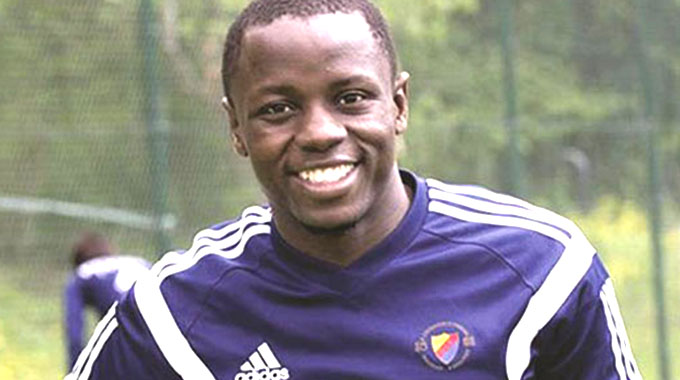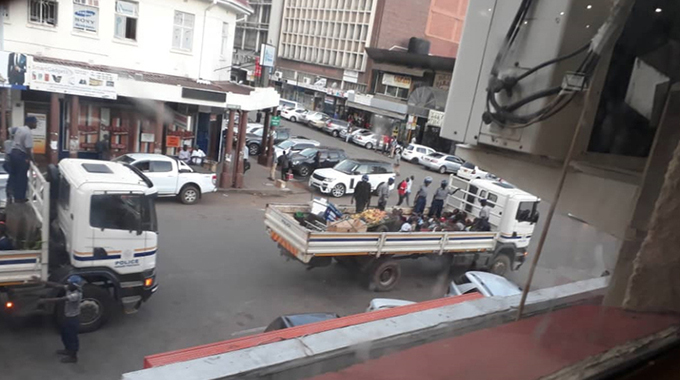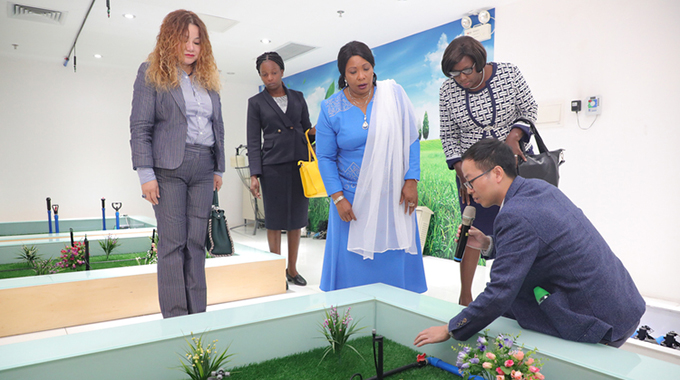Not since Fresh Prince of Bel Air kept seducing our sisters into fantasy has a city loved its Prince this much

Robson Sharuko on Saturday
THERE are moments in life that remain frozen in memory, which stubbornly defy time and the changing seasons and simply refuse to fade away.
Moments, which usually when the world reflects, provoke questions like where were you when it happened, what were you doing when it all exploded.
Like man landing on the moon for the first time, the fall of the Berlin Wall and Manchester United scoring twice in time added on to win the UEFA Champions League in ’99.
Like a 17-year-old Pele, dripping in teenage tears, soaked in sweat, his face the ultimate advertisement of boyish innocence, lost in the moment after starring in the World Cup final in Sweden in ’58.
Like Peter Ndlovu slaloming through the Bafana Bafana defence to score the greatest goal in Warriors’ history, Vitalis Takawira scoring a hattrick against Cameroon.
Like Geoff Hurst crashing his effort against the underside of the Wembley crossbar in the ’66 World Cup final, the ball being carrying back by the forces of gravity for its date with the ground, and its fate into the history books.
Like Prince Dube smashing his fierce effort against the underside of the Barbourfields on Saturday, the ball being sucked back to the ground for its meeting with glory and controversy in the Chibuku Super Cup final.
Like Nyasha Mushekwi somehow having the presence of mind to revisit where his journey started from by acquiring a luxurious 45-seater team bus for CAPS United as a token of appreciation for how they helped him shape his career.
Like Freddie Mercury, in just 17 minutes of a mind-blowing performance at Wembley in ’85 during the Live Aid benefit concert, providing a new meaning to a live stage performance by a musician.
Freddie, struggling with his vocal cords as he fought a secret battle with HIV/AIDS, somehow found the powerful voice he needed for the big occasion.
He had only revealed his condition, to his fellow Queen members just days before that concert to raise funds for millions who were being devoured by famine in Ethiopia.
But, in a show of both defiance and excellence, he seduced the huge crowd inside Wembley, and about two billion watching on television into his magical world with a grand performance which provided a new definition for greatness.
Back in the ’80s, contracting HIV was virtually a death sentence and Freddie knew very well he was going to die when he learned he had the virus.
And, listening to him opening that show with Queen’s hit song, “Bohemian Rhapsody”, appeared like fate had come up with this moment, this grand stage for him to say goodbye to the world.
“Is this the real life, is this just fantasy?
Caught in a landslide, no escape from reality
Open your eyes, look up to the skies and see
I’m just a poor boy, I need no sympathy
Because I’m easy come, easy go, little high, little low
Anyway the wind blows doesn’t really matter to me, to me
Mama, just killed a man, put a gun against his head,
Pulled my trigger, now he’s dead
Mama, life had just begun
But, now I have gone and thrown it all away
Mama, ooh, didn’t mean to make you cry
If I’m not back again this time tomorrow
Carry on, as if nothing really matters
Too late, my time has come
Sends shivers down my spine, body’s aching all the time
Goodbye, everybody, I’ve got to go
Gotta leave you all behind and face the truth
Mama, oooooohhhhhhh
I don’t wanna die
I sometimes wish I’d never been born at all.’’
Of course, Freddie died just six years later from AIDS-related bronchial pneumonia on November 24 1991, a day after finally releasing a statement informing the world of his condition.
He was just 45.
MUSIC, FOOTBALL, SIAMESE TWINS, GREAT PARTNERS
Last year, “Bohemian Rhapsody”, a powerful biopic of Freddie and Queen was released to the world and went on to win four Oscars at the 91st Academy Awards — Best Actor (Rami Malek), Best Film Editing, Best Sound Editing and Best Sound Mixing.
Born in Zanzibar, and named Farrokh Bulsara by his parents, Freddie defied everything life threw at him, was an unlikely superstar who started working as a baggage handler at Heathrow and ended up inducted into the Rock and Roll Hall of Fame.
“‘Bohemian Rhapsody’ is a foot-stomping celebration of Queen, their music and their extraordinary lead singer Freddie Mercury, who defied stereotypes and shattered convention to become one of the most beloved entertainers on the planet,’’ the promotion of the movie reads.
If Freddie’s illness-defying Live Band performance at Wembley was the greatest stage act in history by a musician, Prince’s amazing performance in Miami, Florida, on February 4, 2007, is regarded as the finest SuperBowl half-time show ever.
It was played out before a television audience of about 140 million viewers.
Like Freddie, who refused to be bullied by an executive of their record label who didn’t believe their song, “Bohemian Rhapsody,’’ wouldn’t be a hit, only for it to be the third best-selling single of all-time in the UK, Prince also fought battles with some executives at his record label, Warner Brothers.
That’s the reason I picked the two late megastars to provide a soundtrack to my story today because, after all, music and football are Siamese twins.
We sang “Yava Nyama Yekugocha’’ when King Peter cut through that Bafana defence to score a goal from the heavens at the National Sports Stadium.
They sang “wakhala matengwane, wakhala kwaze kwasa, Highlander ithimu yezwelonke,” after Prince Dube smashed home that disputed goal at Barbourfields on Saturday. And, of course, they sang “Kepekepe Bhora” in the shadows of the giant stadium on Tuesday as the bus Nyasha Mushekwi bought for the Green Machine was unveiled.
I believe the life experiences of Freddie and Prince back the argument, that contrary to what I see being peddled on toxic social media sites, it doesn’t necessarily mean that when an artiste, or athlete suffers rejection in his initial attempt to break into the big time, we have to condemn him or her as a flop for life.
That’s the nonsense I have seen being directed towards Prince Dube by some people, including men and women you would normally expect to be the sober analysts who should provide the sober analysis.
Their band has been playing on for a number of weeks now, savaging the 22-year-old flying forward as someone who should be reminded he was a monumental flop not so long ago.
They have been saying he flopped not only at SuperSport United, the South African side he joined amid a blaze of high expectations in July two years ago, but also on loan at then second-tier side Black Leopards.
Admittedly, the statistics make for some grim reading.
Just one appearance on the bench for SuperSport United in that ABSA Premiership game against Baroka, a place on the bench in a Telkom Round of 16 match against Bloemfontein Celtic and another place on the bench against the same side in a second round Nedbank Cup match.
Then, there was that loan for him to Black Leopards where nothing worked out.
With his confidence shattered, this Prince was certainly barely recognisable as the fine promising forward who had convinced SuperSport United to sign him.
At best, he appeared like an effigy of the striker who had left this country, a local version of Dele Ali before Mourinho arrived at Spurs and, at worst, he appeared like a confused soul.
Even when he returned to Bosso to try and pick up the pieces and the radar he had lost somewhere in his journey to Mzansi, the hangover of that doomed mission in South Africa was clear for everyone to see.
The battered confidence, the wandering on the field, at times aimlessly like a ghost, so devoid of life, at times it was difficult not to feel sorry for him.
But, for all his struggles, I chose not to join the bandwagon of those vicious critics who were feasting on the Prince’s challenges.
ONLY THOSE WITH SHORTER MEMORIES DON’T RECALL MUSHEKWI’S STORY
Only those with short memories who have been celebrating Mushekwi’s Robin Hood status this week might have already forgotten the striker once suffered rejection at Mamelodi Sundowns.
Forgotten that, when Mushekwi initially arrived at the Pretoria club in 2009, the then Sundowns coach, Bulgarian legend Hristo Stoichkov, a former Barcelona superstar who once took his country into the semi-finals of the World Cup in 1994, told his employers the striker was simply not good enough.
It was a brutal assessment of the man who had scored 23 goals in the domestic Premiership that year to win the Golden Boot.
The rejected, but not dejected Mushekwi, came back home.
But God is always watching us from a distance, someone once famously sang.
Somehow, fate ensured CAPS United would take on Moroka Swallows in a CAF Confederation Cup tie in 2010 and Mushekwi headed home the Green Machine’s equaliser in the first leg in Harare.
And in the return fixture in Johannesburg, he was virtually unplayable, again scoring the decisive goal in a 1-0 win for the Green Machine, who eliminated Moroka Swallows.
And, when the game ended, five clubs, including Kaizer Chiefs, were on his trail, with the Amakhosi even stopping him from flying back to Harare, sending him to stay with Thomas Sweswe as they prepared his contract which would be ready the following day.
Stoichkov had been fired from Sundowns by then, and the club’s management, seeing how Mushekwi had overshadowed Siyabonga Nomvethe, who two years later would be crowned the South African Premiership Player of the Season, triggered a soul-searching exercise.
They contacted Farai Jere, told him to get onto the first plane from Harare and come with Mushekwi to sign his contract no matter what time they would arrive in Johannesburg.
Jere got in touch with Mushekwi, they talked about Chiefs, talked about Sundowns, about the rejection, about the humiliation and, in the end, agreed the Brazilians should be given a second chance.
And, with that, the striker — who a few months earlier had suffered the embarrassment of being told he wasn’t good enough for even the Sundowns’ reserve side — joined the Brazilians, and as they say in this world, the rest is history.
Like the Bosso Prince, Mushekwi was 22 back then.
Ten years later, he has played in South Africa, Sweden, Belgium and China, scored more than 100 goals for his foreign clubs, and made enough, in terms of financial rewards, to even buy a luxurious bus for his old team CAPS United.
That’s why I’m not prepared, like others, to give up on Prince Dube — this dashing Prince with a name to fit, the fresh boyish looks that seduce even the devil and an eye for goal that provokes his instincts to shoot on sight.
To join that bandwagon of critics who say he doesn’t have a future outside this country simply because he failed at SuperSport, to savage him for his past rather than celebrate what appears to be a great future for him.
Because, after more than half-a-century in this field, I have seen this story before, this premature conclusion that such struggles represent the end of careers, being proved wrong again and again.
I have also seen it in music where even the likes of Freddie and Prince had to deal with rejection, and a similar army of people, including executives, who doubted them at first, only for them to find a way of parading their genius and become global legends.
Because, not since the Fresh Prince of Bel Air rocked our television screens, featuring a handsome Will Smith whose looks kept pushing our sisters into fantasy, has a city loved its Prince the way Bulawayo has fallen in love with Prince Dube.
To God Be The Glory!
Peace to the GEPA Chief, the Big Fish, George Norton and all the Chakariboys in the struggle.
Come on United!!!!!!!!!!!!!!!!!!!!!!!!!
Ole, Ole, Ole, Ole, Ole, Ole, Ole Ole!
Text Feedback — 0772545199
WhatsApp — 0772545199
Email — [email protected], [email protected]
You can also interact with me on Twitter — @Chakariboy, Facebook, Instagram — sharukor and every Wednesday night, at 9.45pm, when I join the legendary Charles “CNN’’ Mabika and producer Craig “Master Craig’’ Katsande on the ZBC television magazine programme, “Game Plan”.









Comments